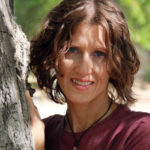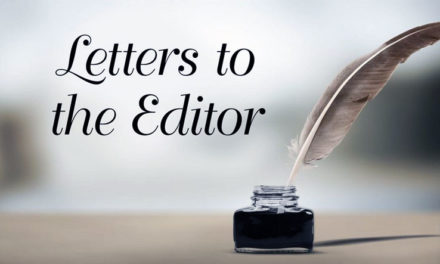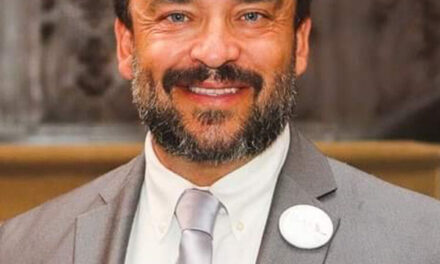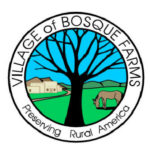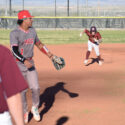paw it forward
“… people do not want to leave their animals, but evacuate together with them in makeshift carriers. It’s inspiring, and we want to support them.” — IFAW, International Fund for Animal Welfare.
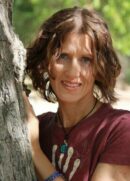
Colleen Dougherty
“Leaving pets to starve or be injured in the conflict is understandably for many an impossible decision. We’ve heard from refugees that the loyal companionship of their pets has kept them going on the long and arduous journey to safety.” — HSI, Humane Society International.
Within days after Russia invaded Ukraine, animal welfare groups and veterinarians from around the world mobilized rescue and assistance efforts to help people and their pets fleeing from the war. Just 17 days after the attacks began, IFAW had deployed rescue workers to the so-called “corridor” at the border of Ukraine and Poland. There they set up the “Blue Tent,” where veterinarians and staff from IFAW and its partner organizations across Eastern Europe met refugees with food, carriers, blankets, vet care, and hope.
By September they had assisted more than 75,000 animals, including zoo animals and wildlife. On March 8, a convoy carrying six lions, six tigers, twi caracals (wild cats) and one African wild dog set off on the 300-mile journey to the Poznan Zoo in Poland.
They came under fire at one point and were surrounded by tanks, but carried on, arriving at the zoo with animals “exhausted and scared, but safe.” IFAW also moved some big cats and cubs to sanctuaries in the U.S. and France, and the Animal Welfare Institute provided funding to Four Paws, a global animal welfare organization based in Vienna, Austria, to help rescue seven bears to its sanctuary in Domazhyr, western Ukraine.
Four Paws also launched a program offering therapy dog services to kids and families victimized by the war, and has committed itself to continue working on behalf of the many stray animals left behind.
By August, Jeff Beri, of No Dogs Left Behind, still working tirelessly rescuing dogs from the diabolical dog meat trade in southeast Asia, landed his “boots on the ground” task force in Ukraine, delivering tons of food and veterinary services to individuals and sanctuaries, some in ruins from the shelling. In a video from NDLB on Dec. 17, a visibly shaken Beri, accompanied by Uki, one of the last dogs he rescued before leaving Ukraine, described the devastation he had seen as well as his experience when 16 bombs exploded around one of the transports he was on.
IFAW closed the Blue Tent on May 31 as the stream of refugees declined, but all these organizations and the many partners they work with, from Europe to Mexico, have crafted plans and committed themselves to continuing their work in this devastated region.
It’s hard to describe the feelings I had as I read the stories and watched the videos, knowing both the danger everyone was in and the blessings their work was providing. Interviews with refugees holding their pets was heartbreaking — I guess is a good word — a mixture of joy and relief for them as they cradled their pets, and something I cannot yet name as they expressed gratitude for help in such an unthinkable and cruel situation.
Then, as if the war was not enough of a tragedy, came the series of earthquakes in Turkey and Syria. Within days, Humane Society International, Four Paws, IFAW and their partner organizations arrived on the ground, rescuing animals and providing food, vet care and comfort. In a video from one of IFAW’s partners, Syrian-based House of Cats Ernesto, a gray and white long-haired cat, mewing softly, waited patiently as three men dug with their hands and lifted her from the rocks, cradling and stroking her as they passed her down the line to safety.
Another partner, Haytap, shared their rescue of a little white dog named Pamuk, which means “cotton” in Turkish, and a mama dog who stayed with her trapped puppies for six days before being rescued.
One of Haytap’s rescue trucks was destroyed when in a cascade of rubble fell on it. Luckily, no one was hurt, and their work continues, saving everything from cats and dogs to ducks, turkeys, goats and donkeys.
As I expect is true for many, my emotions have been a rollercoaster this past year. But despite all the chaos and human-inflicted cruelty, I find myself taking great comfort knowing that there are millions of people across the world for whom the values of compassion, courage and commitment to honor life and love somehow rise above it all.
(Colleen Dougherty’s history in animal welfare includes work in a veterinary clinic, shelters in Santa Fe and Albuquerque, and currently as a volunteer for the Valencia County Animal Shelter. She has been a speaker at the N.M. State Humane Conference on three occasions, presenting talks on caring for small mammals in the shelter setting, and compassion fatigue in animal welfare. She holds degrees in art and counseling therapy, and certificates in eco-psychology and feline massage therapy.)
